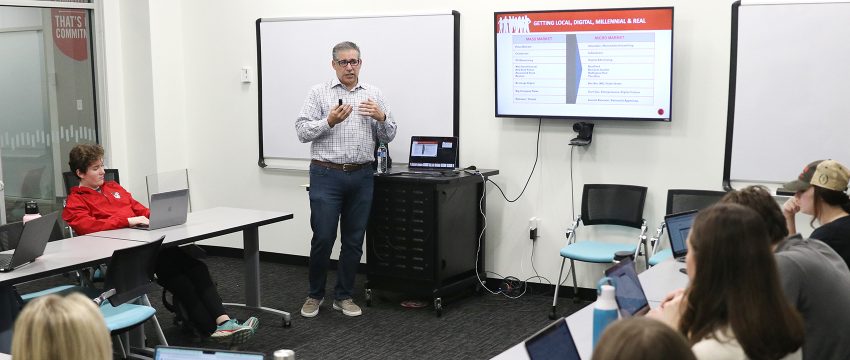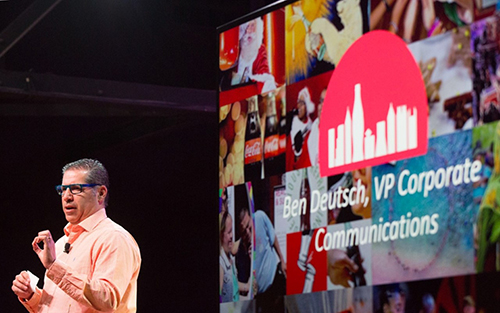Former Coca-Cola executive to teach new course on corporate communications

Former Coca-Cola executive to teach new course on corporate communications
The Department of Advertising and Public Relations at the Grady College of Journalism and Mass Communication is excited to offer a new course this spring that will give advertising and public relations students an overview of corporate communications and the critical role it plays in protecting and enhancing an organization’s reputation.
The course, Introduction to Corporate Communications, an upper-level elective one, is taught by Ben Deutsch, former vice president of corporate communications at The Coca-Cola Company. Deutsch retired in 2017 after a 25-year career at Coca-Cola, the last 11 years of which he led external and internal communications for the global beverage company.
In the course, students will learn how to develop integrated communications plans that involve all aspects of the corporate communications mix: media relations, brand PR, internal communications, crisis communications, social & digital communications, government relations, investor relations, executive communications, and corporate social responsibility.
“I want to leverage my 30 years of working as a communications professional to help students learn communications skills and strategies through theory and real, practical experiences,” Deutsch said. “Having worked as the communications leader of a publicly traded, multi-national company, I bring to bear the experiences – good and bad – that can help shape and guide students as they learn about corporate communications as a career.”

“Thanks to Ben’s rich professional experiences and networks, our students will be able to learn from and interact with a good number of Chief Communications Officers and communications leaders from a wide range of sectors and organizations such as Home Depot, Coca-Cola, UPS, Delta, Chick-fil-A, and the United States Olympic and Paralympic Committee,” said Juan Meng, head of the Department of Advertising and Public Relations. “To have top leaders in our profession to share their real-world learnings and experiences will help our students have a deep understanding of the latest trends and functions of corporate communications.”
This is important, Deutsch said, because it gives students a ‘behind-the-scenes’ perspective on the challenges and opportunities that communications leaders face every day.
“At the end of the day, I want my students to understand the critical and valuable role communications plays in any enterprise,” said Deutsch. “I want them to be able to think strategically about communications and to be energized, excited and motivated to pursue a career in communications. And finally, I want them to have fun, and enjoy the process of learning.”